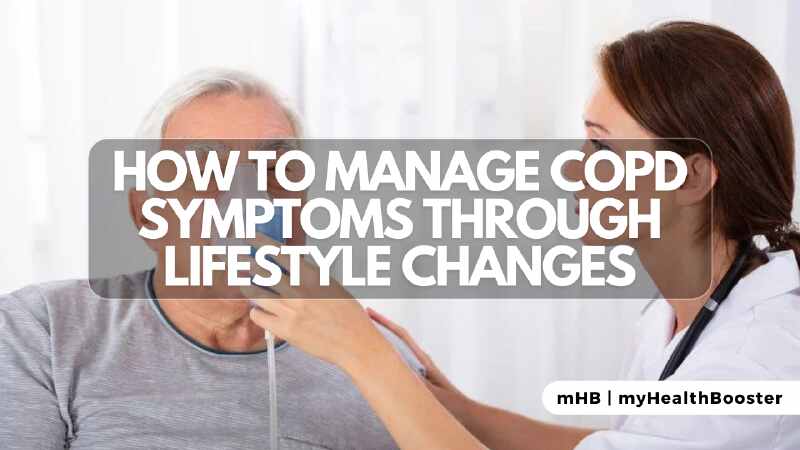Chronic Obstructive Pulmonary Disease (COPD) can significantly impact daily life, but with strategic lifestyle changes, individuals can effectively manage symptoms and improve their quality of life. This post explores practical and knowledgeable strategies to help those with COPD breathe easier and lead fulfilling lives.
Chronic Obstructive Pulmonary Disease (COPD)
- What is COPD?
- COPD is a progressive lung disease that includes chronic bronchitis and emphysema, characterized by airflow limitation and difficulty breathing.
- Common Symptoms:
- Shortness of breath
- Chronic cough
- Chest tightness
- Wheezing
Lifestyle Changes for Managing COPD Symptoms
- Quit Smoking:
- Why it’s Crucial: Smoking is a leading cause of COPD; quitting slows disease progression.
- Support Options: Utilize smoking cessation programs, support groups, or medications.
- Regular Exercise:
- Benefits for COPD: Improves lung function, enhances cardiovascular health, and boosts overall stamina.
- Exercise Options: Consider walking, swimming, or pulmonary rehabilitation programs.
- Maintain a Healthy Diet:
- Nutrient-rich foods: Include fruits, vegetables, whole grains, and lean proteins.
- The importance of Nutrition: Supports overall health and provides energy for daily activities.
- Manage Weight:
- Maintaining a Healthy Weight: Reduces the strain on respiratory muscles.
- Nutritional Guidance: Consult with a healthcare professional or dietitian for personalized advice.
- Stay Hydrated:
- Importance of Hydration: Thins mucus, making it easier to clear from the airways.
- Hydration Tips: Drink water throughout the day, and avoid excessive caffeine or alcohol intake.
- Pulmonary Rehabilitation:
- Structured Programs: Combine exercise, education, and support.
- Benefits: It enhances physical and emotional well-being while teaching coping strategies.
- Manage Stress:
- Stress-Reduction Techniques: Practice deep breathing, meditation, or yoga.
- Importance: Stress can exacerbate COPD symptoms; managing it is crucial for overall well-being.
- Ensure Proper Medication Use:
- Adherence to Medications: Take prescribed medications as directed.
- Inhaler Techniques: Learn proper inhaler use for optimal effectiveness.
COPD Frequently Asked Questions
- Can air quality affect COPD symptoms?
- Yes, poor air quality, including pollution or exposure to irritants, can worsen COPD symptoms. Avoiding such environments is crucial.
- Are there specific exercises to avoid with COPD?
- High-intensity exercises or those that cause breathlessness should be approached with caution. Consult a healthcare professional for personalized exercise recommendations.
- How often should someone with COPD see their healthcare provider?
- Regular check-ups are essential, and the frequency may vary. Consult with healthcare providers to determine an appropriate schedule.
- Can COPD be reversed with lifestyle changes?
- While lifestyle changes can improve symptoms and slow progression, COPD is generally not reversible. Early intervention is key to effective management.
Conclusion
Managing COPD through lifestyle changes requires commitment and a holistic approach. By incorporating these knowledgeable strategies into daily life, individuals with COPD can significantly improve their symptoms, enhance their overall well-being, and breathe easier. Always consult with healthcare professionals for personalized advice and to create a tailored management plan for COPD.
